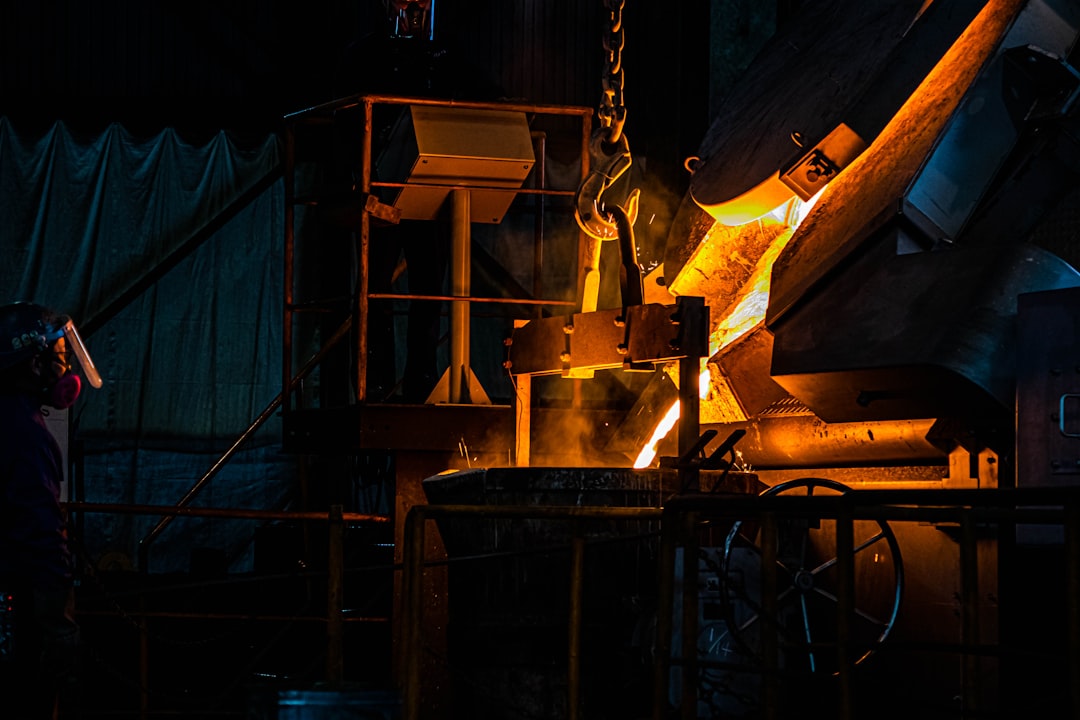The steel industry is a global powerhouse, demanding high standards of quality, safety, and environmental responsibility. To thrive in this competitive landscape, obtaining relevant certifications is no longer a luxury but a necessity. This comprehensive guide will walk you through the world of steel industry certifications, explaining their types, benefits, and the process of achieving them.
Understanding the Landscape of Steel Industry Certifications
The range of certifications available in the steel industry is vast, catering to different aspects of the production process and final product. These certifications are crucial for demonstrating compliance with international standards, ensuring product quality, and enhancing market competitiveness. They can be broadly categorized into:
- Quality Management Systems (QMS): These certifications, such as ISO 9001, focus on establishing and maintaining a robust quality management system throughout the entire steel production lifecycle. This includes everything from raw material sourcing to final product delivery, ensuring consistent quality and customer satisfaction.
- Environmental Management Systems (EMS): Certifications like ISO 14001 demonstrate a commitment to environmental sustainability. This includes minimizing waste, reducing emissions, and conserving resources throughout the steel manufacturing process. Increasingly, customers demand environmentally responsible practices from their suppliers.
- Occupational Health and Safety (OH&S): Certifications like ISO 45001 prioritize the health and safety of employees. This involves implementing robust safety procedures, providing necessary training, and maintaining a safe working environment. A strong OH&S record is crucial for attracting and retaining skilled labor.
- Product-Specific Certifications: These certifications verify that specific steel products meet particular performance standards. Examples include certifications for structural steel, stainless steel, or specialized steel alloys, often involving rigorous testing and verification processes.
- Material Certifications: These certifications validate the chemical composition and mechanical properties of the steel, ensuring it meets the required specifications for its intended application. This is particularly important for critical applications in construction, aerospace, and automotive industries.
The Benefits of Steel Industry Certifications
Obtaining relevant certifications offers numerous advantages for steel manufacturers and suppliers:
- Enhanced Market Credibility and Competitiveness: Certifications demonstrate a commitment to quality, safety, and sustainability, giving your company a competitive edge in the global marketplace.
- Increased Customer Confidence: Customers are increasingly demanding certified products, ensuring quality and compliance with industry standards. Certifications build trust and confidence in your brand.
- Improved Operational Efficiency: Implementing certified management systems often leads to streamlined processes, reduced waste, and improved overall efficiency.
- Reduced Risks and Liabilities: Certifications help mitigate risks associated with non-compliance, accidents, and product defects, reducing potential legal and financial liabilities.
- Access to New Markets and Opportunities: Many international markets require specific certifications for product import and sale, opening up new business opportunities.
- Improved Employee Morale and Retention: A commitment to safety and quality through certification programs can improve employee morale and reduce staff turnover.
Navigating the Steel Certification Process
The certification process typically involves several key steps:
- Gap Analysis: An initial assessment to identify the gaps between your current practices and the requirements of the chosen certification standard.
- Documentation Development: Creating and implementing the necessary documentation, procedures, and policies to meet the certification requirements.
- Internal Audits: Conducting internal audits to verify compliance with the implemented system.
- Management Review: Regular management reviews to assess the effectiveness of the management system and identify areas for improvement.
- Certification Audit: An external audit conducted by a certified accreditation body to verify compliance with the chosen standard.
- Certification Issuance: Upon successful completion of the audit, the certification body issues the relevant certificate.
- Surveillance Audits: Regular surveillance audits are conducted to ensure ongoing compliance with the standard.
Choosing the Right Steel Industry Certification
The specific certifications you need will depend on your company’s operations, target markets, and customer requirements. Carefully consider your needs and priorities when selecting the appropriate certifications. Consult with industry experts or certification bodies to determine the best path for your organization.
Maintaining Your Steel Industry Certifications
Once you’ve achieved certification, it’s crucial to maintain it through ongoing compliance and regular surveillance audits. This involves continuous improvement efforts, employee training, and adherence to the requirements of the chosen standard. Failure to maintain compliance can result in the loss of certification, negatively impacting your company’s reputation and market position.
This guide provides a foundational understanding of steel industry certifications. Remember to research specific certifications relevant to your operations and consult with industry professionals for personalized guidance.
SEO Tags:
- Steel Industry Certification
- Steel Certifications
- ISO 9001 Steel
- Steel Quality Certification
- Steel Manufacturing Certification




